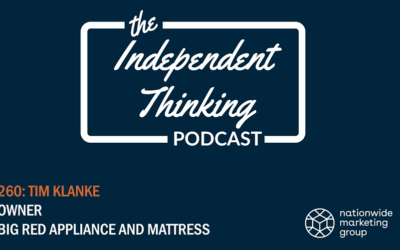Credit card transactions account for the large majority of purchases made within the home goods sector. Due to store closures, capacity limits during phased reopening and customers’ hesitation to shop in person because of COVID-19, it’s easy to imagine that credit card purchases will only increase over time.
As customers’ shopping habits evolve, a merchant’s chargeback prevention methods will need to evolve as well to protect revenue and retain happy customers. Retailers can take a number of precautions to reduce chargebacks and fraud on online credit card purchases. Some methods are tried and true, while others are driven by consumers’ new ways of shopping.
Nationwide Marketing Group worked with vendor partners Payroc and Wells Fargo to identify best practices. Below are tips retailers can follow to help minimize chargebacks, reduce fraud, and increase customer satisfaction.
Tried and True Standards of Protection
Use Address Verification (AVS). AVS is an automated fraud prevention program that checks the billing address listed in the transaction against the address registered with the issuing bank. Retailers should always request both the billing and shipping address from consumers and conduct AVS before processing the transaction.
Always Require Security Codes. Card security codes cannot be stored by the merchant or processor; the cardholder must reenter the digits every time a purchase is made. Since the information is only available on the card, hackers cannot access it anywhere else.
Red Flags to Watch For. Multiple purchases of the same product; big-ticket item purchases; using multiple cards for a single purchase; multiple orders for one card with product shipped to different locations, or rush/overnight orders should raise red flags. When suspicious, call the customer to validate the order.
Newer/Less Common Security Measures
3D Secure. When 3D Secure is used, the checkout process will include an additional prompt and security window. The customer will be asked to enter a predetermined security code. Retailers can work with their processor to implement the use of 3D Secure to add into the checkout process.
Increase Security Measures with Tokenization or End-To-End Encryption. Tokenization uses a third-party provider to create a token which replaces the credit card information. The merchant is not responsible for storing sensitive information as these tokens replace the customer’s data. End-to-end encryption protects cardholder information while it is in transit or at rest and provides uninterrupted data protection.
Keeping Customers Happy and Reducing Confusion
Unhappy, frustrated, or confused customers may resort to disputes or cancellations. Retailers with a clear and effective multi-dimensional approach to communicating with customers can reduce chargebacks, frustrations, and cancelled orders. Below are some tips to improve your communications strategy.
Store Contact Information. Make sure finding your contact information is easy and clear for customers. This allows customers to contact you easily and minimize cancelled or disputed charges.
Reply to Emails. All emails from customers should receive a response; and the sooner the better. Consider providing an automated response confirming the email was received and provide an estimated deadline for reply.
Check Social Media. Social media is great for advertising, but it is also a tool for communication. All social media accounts should be checked and customers’ questions, comments, and grievances responded to in a timely manner.
New Hours of Operation. Online shopping provides the opportunity to sell product outside of traditional hours. However, customers shopping online expect instant gratification and quick response times. A recent study found nearly 70% of customers wanted a reply within 24 hours, and almost 35% expected a response within 30 minutes. Your online sales floor is open 24 hours a day, and customer service should match those demands as well.
Clear Expectations with Shipping and Delivery. With the rise of online sales and demand for instant gratification, managing consumer’s expectations for delivery times can minimize cancelled orders from frustrated customers. Provide clarity of shipping and delivery dates and options to customers. If an item is backordered (which is certainly likely during this COVID-19 pandemic) or discontinued, let the customer know immediately. Further, retain proof of deliveries and signed credit card slips to defend against chargebacks.
Marketing Products Online. When shopping in person a customer can handle the product and make judgements regarding important qualities. Online shopping can present challenges for customers when evaluating a product’s qualities. Ensure product descriptions are elaborate and accurate. Use video and images in abundance and use different angles to highlight key features.
Merchant Errors
While many retailers focus on the risks due to fraud, merchants may be surprised to learn nearly 40% of chargebacks are caused by merchant errors. By implementing the basic methods below, retailers can reduce errors and protect revenue.
- Never accept expired cards
- Grant credits and cancellations when requested by the customer
- Submit copy request paperwork to an issuer in a timely manner when requested
- Never force a sale
If your terminal declines a credit card transaction due to ‘stolen/declined,’ do not proceed with the transaction. This customer typically will shop for products with a high-ticket value and only for products in stock. When the card is declined, the customer offers to call their bank. The person on the other line (not their actual bank) will ask more information regarding the type of terminal of the retailer. The person on the other line then provides a code or a function that allows an override. The transaction will be listed as ‘forced’. These sales are enticing, but they are not valid. If the sale is forced, you run the risk of losing both the merchandise and the money.
Following the above best practices will put retailers in a strong position to protect themselves against chargebacks, it can protect their revenue, and it can increase the likelihood of repeat customers.
Nationwide Marketing Group brings a strong team of professionals to help retailers minimize chargebacks as well as understand and navigate these changing times. If you need more information or want to implement some of the changes listed above, let Nationwide help you. In addition, the professionals at Nationwide’s credit card processors, Wells Fargo and Payroc, can help you understand and navigate these changing times. Call 318-798-0123 to start the process of reducing chargebacks and fraud.




